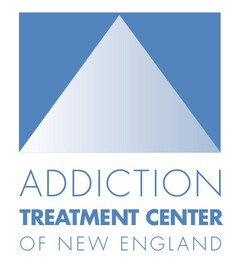Efficient Techniques: Evaluating the Suitable Addiction Treatment Center
Efficient Techniques: Evaluating the Suitable Addiction Treatment Center
Blog Article
Browsing the Journey of Detoxification in the Comprehensive Dependency Therapy Program
Starting the path of cleansing within the structure of a comprehensive dependency treatment program is an essential phase in the trip in the direction of recovery. The process of detoxing holds a considerable role in breaking the physical dependancy on substances and preparing the person for the subsequent phases of treatment. Browsing through detoxification is not simply an issue of physical cleansing; it entails an intricate interaction of psychological, psychological, and social factors that call for mindful consideration and assistance. As individuals come to grips with the obstacles of withdrawal signs and symptoms and the uncertainties that lie in advance, having a structured plan and a robust support system in area ends up being extremely important. In this conversation, we will certainly check out the complex elements of cleansing within the thorough addiction treatment program and clarified the vital parts that form this transformative journey towards healing.
Relevance of Detoxing in Recuperation

Cleansing sets the structure for the remainder of the dependency treatment program by preparing the person for further therapy and counseling. By cleansing the body important that have actually been clouding judgment and influencing habits, detoxification allows clients to approach their recovery with a more clear mind and stronger focus.
Moreover, detoxing aids in managing the potentially severe withdrawal symptoms that might occur when medicine or alcohol usage is stopped. Physician closely keep an eye on patients throughout detox to ensure their safety and security and supply necessary support. Through this process, people can begin their trip towards soberness with a supported mental and physical state, boosting the likelihood of a successful recuperation.
Recognizing the Detox Process
Detoxification, a fundamental element of addiction treatment programs, entails a structured procedure focused on securely removing unsafe materials from the body to facilitate a successful healing journey. The detox procedure generally begins with an analysis to evaluate the individual's substance usage background, physical wellness, and psychological health. This assessment assists medical care specialists identify one of the most appropriate detoxification strategy customized to the person's requirements.
Throughout detoxification, the body goes through withdrawal as it adjusts to the lack of the compound. Withdrawal signs vary depending on the kind of compound made use of, the period of use, and specific factors. Clinical supervision during detox is vital to take care of withdrawal signs and make sure the individual's safety and security and comfort.

Handling Withdrawal Signs

Medications may be used to minimize particular withdrawal symptoms and decrease discomfort. For instance, drugs like methadone or buprenorphine can assist manage opioid withdrawal symptoms, while benzodiazepines might be made use of for alcohol withdrawal. It is crucial for doctor to very carefully check the person's reaction to these drugs to ensure their safety and security and performance.
In enhancement to medicinal treatments, supportive therapies such as therapy, peer support groups, and holistic methods like mindfulness meditation or yoga can help individuals manage the emotional and psychological challenges of withdrawal. By attending to withdrawal signs and symptoms thoroughly, doctor can enhance the detoxing experience and assistance people on their journey to healing.

Assistance Solutions During Detox
Support group play a vital function in giving social and emotional aid to people undergoing detoxing in addiction treatment programs. During the detox process, people usually experience a range of physical and mental withdrawal signs and symptoms, making this stage challenging - Addiction Treatment Center. Having a strong assistance system in position can substantially influence the individual's capability to browse via detox successfully
Assistance groups provide a system for individuals to link with others that are going through similar experiences, using a feeling of neighborhood and shared understanding. Health care professionals, including physicians, counselors, and therapists, play a crucial function in monitoring the person's progress, offering medical support, and providing support throughout the detox procedure.
Looking Ahead: Life After Detox
Having efficiently completed the detoxification phase, individuals in addiction therapy programs currently focus on preparing for the obstacles and possibilities that exist ahead in their trip towards recuperation. Life after detoxification marks a critical shift period where individuals need to continue to improve the development made throughout detoxification to preserve their sobriety. It is vital for individuals to recognize that the journey in the direction of recuperation is continuous and calls for devotion, commitment, and a desire to accept modification.
One trick element of life after detoxification is the development of coping systems to take care of triggers and yearnings that might develop. This may involve discovering brand-new abilities, such as mindfulness techniques, cognitive-behavioral methods, and tension monitoring techniques, to navigate challenging circumstances without considering material use. Furthermore, people are motivated to proactively take part in ongoing treatment, support system, and aftercare programs to enhance their support network and receive assistance as they browse the complexities of life post-detox.
Verdict
Finally, detoxing is a vital part of the thorough dependency therapy program. Recognizing the detoxification procedure and managing withdrawal signs are vital steps in the direction of recovery. Assistance systems play a substantial duty during this difficult journey. Addiction Treatment Center. Looking in advance, life after detox holds pledge her response for a much healthier, substance-free future. image source It is essential to acknowledge the significance of detox in the procedure of conquering dependency and relocating towards a life of sobriety.
Clinical supervision throughout detox is critical to handle withdrawal symptoms and make certain the individual's safety and comfort.
By comprehending the detoxification process and its value in breaking the cycle of dependency, people can begin on a course towards lasting recovery.
During the detox process, individuals usually experience an array of mental and physical withdrawal symptoms, making this phase difficult. Health care professionals, consisting look at this website of specialists, physicians, and counselors, play an important role in monitoring the person's progress, giving clinical support, and using advice throughout the detox procedure.
Life after detox marks an essential change period where individuals need to continue to develop on the progression made throughout detox to preserve their soberness.
Report this page